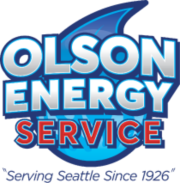-
Strategies for Improving Your Indoor Air Quality
Most people spend most of their time indoors, which means that the air they’re most exposed to is the air inside their homes. That means that the quality of your indoor air can have a significant impact on your life. Acting to improve your indoor air quality can make your Seattle home a safer and healthier place for you and your family. Here are some of the steps you can take to make your household air cleaner:
Invest in an Air Cleaner
Air cleaners—or air purifiers—are devices that are designed to remove contaminants such as dust and pollen from the air. If you can’t seem to keep allergens out of your home, an air cleaner may be a smart investment for you. It’s important to keep in mind, however, that air cleaners work best if you are already using other ways to minimize the number of pollutants in your household air.
Have Your Ducts Cleaned
If you don’t have them cleaned out from time to time, your HVAC system’s air ducts can harbor dust, pollen, mold, pet dander, dust mites, and other contaminants. When you run your furnace or air conditioner, these pollutants are spread throughout your entire home. If you suffer from allergies, this can make them worse. Having your ducts cleaned by a professional can help to ensure that your indoor air stays clean and breathable.
Call for Regular HVAC Service
When you use your furnace or air conditioner frequently, the various components of your HVAC system can get dirty and moldy—which will not only impact your air quality, but can also cause your system to break down. To reduce your need for repairs and maintain high-quality air inside your home, you should have your system inspected, cleaned, and serviced by an HVAC professional on a regular basis.
-
3 Simple Ways to Make Your HVAC More Energy-Efficient
Have you ever stopped to wonder just how much energy you use heating and cooling your Seattle home every month? In fact, according to the U.S. Department of Energy , nearly half of all of the energy you pay for in your household goes toward running your heating, ventilation, and air conditioning . This means that making your heating and cooling systems run more efficiently can help you both reduce your household’s environmental impact and keep your energy expenses down. Here are some simple steps you can take for a more energy-efficient HVAC system:
Buy a programmable thermostat.
Purchasing and installing a programmable thermostat is a great way to rein in your energy usage at home. Programmable thermostats let you schedule different settings throughout the day, ensuring that you aren’t needlessly running your HVAC system late at night, or when nobody is home. The latest programmable thermostats even allow you to adjust them remotely using Wi-Fi.
Change out your air filter.
When your air filter gets clogged up with a lot of dirt and debris, it means that your HVAC system won’t be running as efficiently. Fortunately, you can forestall that problem by making sure to change out your old air filter for a new one once every month or so. The more heavily you’re relying on your air conditioning or furnace, the more frequently you will want to change your filter.
Upgrade your entire HVAC system.
The older your air conditioner or furnace is, the more inefficient it is likely to be. As time goes on, this can turn into an expensive problem. One of the best ways to reduce your energy usage is to replace your old HVAC system with a newer, more energy-efficient one. Make sure that any new HVAC equipment you buy has been certified by Energy Star, which signifies that they are among the most energy-efficient products available.
-
Ductless Heat Pumps 101
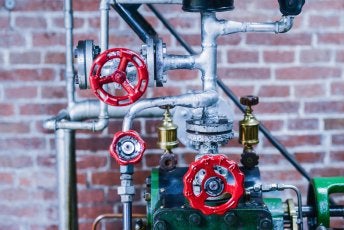
Ductless systems are fast becoming one of the most popular methods of heating and cooling modern homes, and it’s not hard to see why. Compared to traditional central HVAC systems, ductless heating and cooling systems are versatile, efficient, and cost-effective. If you’re considering adding a ductless heat pump to your Seattle home, here’s what you should know.
Ductless systems are effective heaters.
A ductless heat pump works by using a system not unlike the one that powers your refrigerator. The pump uses a compressor to transfer heat from outside into your living space, where the degree of heat you get can be controlled using a remote control. It’s a simple process that results in reliable, consistent heating. Ductless heat pumps are extremely quiet to operate, and they are also much less expensive to use than furnaces.
Ductless systems are highly efficient.
If you’re looking to cut back on your energy usage, a ductless system is a great option for home heating. With a ductless heat pump, you can heat every space by only as much as it needs and avoid unnecessary energy use. HVAC systems with ducts also tend to lose a lot of heat during the process of distributing it throughout your home, which isn’t an issue with a ductless system.
Ductless systems can be used anywhere.
One of the chief advantages of ductless heat pumps is their sheer versatility—they can be used to heat virtually any type of home space, whatever its size. Unlike other heating systems, they don’t require you to install any pipes or other room additions. If you’re ready to retire your outdated, inefficient central heating system, a ductless heat pump is a terrific option. You can also use ductless heat pumps to complement your existing system if you have a space that you’re having trouble heating.
-
Could You Benefit from a Fireplace Insert?

A fireplace can make a wonderful addition to your Seattle home, but there are some notable drawbacks to a conventional fireplace that might give you pause. Fireplaces are notoriously wasteful, as most of the heat they generate is lost through the chimney. They can also be cumbersome and expensive to operate, which means that many homeowners don’t end up actually using their fireplaces as often as they had expected. They also require a great deal of maintenance and regular cleaning.
If you want to be able to enjoy the warmth and comfort of a traditional fireplace without any of the associated mess, expense, and inefficiency, you may want to think about a fireplace insert . Fireplace inserts are highly efficient, so they allow you to enjoy the heat they produce. They are easy to operate, and they can also be stylish and aesthetically appealing, making them an especially attractive option for today’s homeowners.
-
An Inside Look at Geothermal Heat Pumps
As the world continues shifting toward more sustainable and efficient energy sources, heating and cooling options have expanded to include geothermal heating and cooling. This technology harnesses the earth’s heat energy to keep homes and businesses comfortable all year round. Explore the ins and outs of geothermal heating, the mechanisms behind geothermal heat pumps, their benefits, and other considerations.
What is Geothermal Heating?
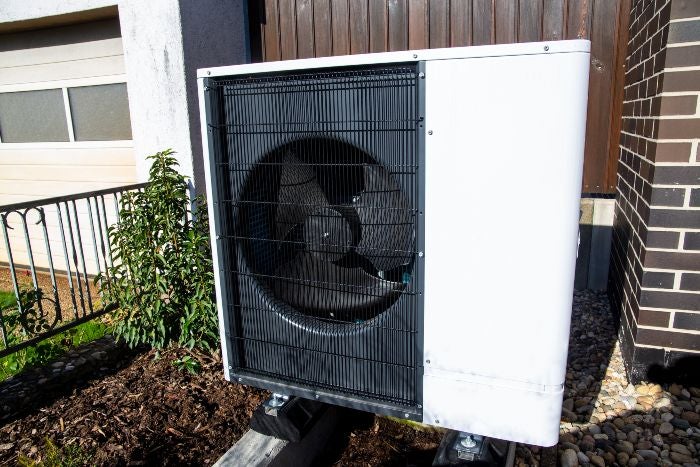
Geothermal heating is an energy-efficient climate control method that taps into the constant thermal energy stored beneath the earth’s surface. This form of heating is seen as a green alternative to traditional methods because it substantially reduces the reliance on fossil fuels and decreases greenhouse gas emissions.
While the ground near the surface fluctuates almost as much as the air temperature, the soil below the frost line maintains a steady temperature of 45 to 75 degrees. This heat source remains consistent despite seasonal changes, making it a reliable option for both heating and cooling.How Do Geothermal Heat Pumps Work?
Are you familiar with air-source heat pumps? These AC-like systems move heat between the indoor and outdoor air for high-efficiency heating and cooling. Geothermal or ground-source heat pumps are similar, but they exchange heat between the earth and the buildings they serve.
A series of underground pipes, known as a ground loop, comprises the heart of geothermal heating and cooling. Ground loop systems come in two forms: open loop and closed loop. Open loop systems utilize well water, a pond, or a lake for direct heat exchange. In this case, the ground loop is filled with water.
Closed loop systems absorb or disperse heat directly to the earth, offering versatility and environmental safety but requiring a larger installation area. In this case, the ground loop contains a mixture of water and antifreeze as the heat-transfer fluid.
In heating mode, the fluid circulating through the pipes absorbs heat from the ground and carries it to the heat pump unit. There, the heat is concentrated and transferred to the air circulating through the building’s ductwork, thus heating the interior.
During the cooling process, the heat pump absorbs heat from the indoor air and transfers it into the ground via the loop system, thereby cooling the building. Transitioning between heating and cooling modes is seamless and can be controlled at the thermostat.
Pros and Cons of Geothermal Heat Pumps
Like all heating and cooling systems, geothermal heat pumps have benefits and challenges. Here’s a breakdown of each:
Pros
- Energy efficiency: Geothermal heat pumps are incredibly efficient. They can deliver three to five units of heat for every unit of electricity they use, making them 300 to 500 percent efficient. This incredible performance is possible because the heat pump transfers heat rather than creating it, a critical difference from conventional heating systems.
- Cost savings: Higher efficiency amounts to significant utility savings over the long term, making geothermal heat pumps a cost-effective investment.
- Environmental benefits: By leveraging renewable energy from the earth, these systems reduce dependence on fossil fuels and produce fewer greenhouse gas emissions.
- Durability and reliability: Geothermal systems have few moving parts, leading to a longer lifespan and lower maintenance needs than conventional systems. The indoor components typically last about 25 years, and the ground loop can last over 50 years.
Cons
- High initial investment: Geothermal heat pumps cost significantly more than traditional HVAC systems, largely due to the ground loop portion. However, federal, state, and local incentives help offset the upfront cost.
- Site-specific considerations: Installation is challenging, sometimes impossible, on smaller properties or areas with difficult ground conditions. A thorough site evaluation is essential before installation.
- Electricity use: While efficient, geothermal systems still run on electricity, so they aren’t carbon neutral unless powered by renewably sourced electricity.
- Professional installation and maintenance required: Due to their complexity, geothermal systems must be professionally installed and maintained. And since geothermal heat pumps are less common, finding a qualified installer may be difficult.
Trust Olson Energy Service for Your Geothermal Needs
With nearly a century of service in the Seattle area, Olson Energy Service takes pride in delivering energy-efficient heating and cooling solutions to our customers. Our mission has always been centered on serving the community with integrity and expertise. We’ll work hard to provide a system that meets your unique needs, enhances comfort, and contributes to a healthier planet. If you’re considering the switch to a geothermal heat pump or need other HVAC services in Seattle, WA, please contact us online or call us at 206.782.5522 to speak with a friendly representative today.
-
Get the FAQs and Answers About Tankless Water Heaters
While traditional water heaters use a tank to heat water, tankless water heaters heat water on demand. If you’re thinking of installing a tankless water heater in your Seattle home, you may be wondering whether the investment is worth it. Here are some of the most commonly asked questions about tankless water heaters.
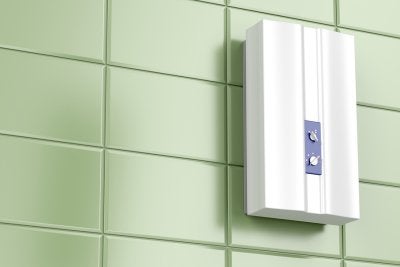
Do tankless water heaters use less energy than traditional water heaters? Yes. Because tankless water heaters don’t have to keep water heated constantly, they don’t need to use as much energy as standard water heaters do. This is both good for the environment and good for your household budget. With a tankless water heater, you can enjoy hot water whenever you want without having to be concerned about wasting energy.
Will a tankless water heater cost a lot to operate? While tankless water heaters cost more to install than standard water heaters, they also cost less to operate on a regular basis. According to Energy Star , households that install tankless water heaters can expect to save at least $100 a year on their HVAC expenses.
Do tankless water heaters require a lot of space? In fact, tankless water heaters take up much less space than most standard water heaters. While traditional water heaters tend to be large and bulky, a tankless water heater is compact and can be installed in virtually any part of your home. Many homeowners appreciate the versatility allowed by tankless water heaters, which can be placed anywhere from garages to attics.
Will it be more difficult to get hot water with a tankless water heater? You might be concerned that you won’t be able to get heated water as reliably with a different type of water heater, especially if you have a large household where more than one person might need hot water. There’s no need to worry: A tankless water heater will allow you to get hot water from multiple taps—such as your shower tap and your kitchen sink tap—at the same time.
““
-
Compelling Reasons to Choose a Tankless Water Heater
In recent years, hot water heater technology has evolved to include many different types of tankless models. When you install a tankless water heater in your home, you will enjoy an unlimited supply of hot water that is generated on demand. By purchasing a tankless water heater from a contractor that installs hot water heaters in Seattle, you will be able to pick out a model that meets your household’s daily hot water requirements. If you are on the fence about whether tankless technology is right for your home, read these compelling reasons to choose a tankless water heater.

Endless Hot Water Supply
A conventional hot water heater stores its entire supply of hot water in a large, insulated tank. During times of high demand, your conventional water heater may run out of heated water. If you are tired of taking cold showers or running out of hot water at inconvenient moments, a tankless water heater may be the best choice for your household. This type of hot water heater creates an endless supply of hot water.
Prolonged Lifespan
When you purchase a tankless hot water heater, you can feel great knowing that your investment will last for up to two decades or longer. Although tankless hot water heaters often require a larger initial investment, the cost is offset by their long lifespans. In comparison, you will typically find yourself replacing your conventional hot water heater at least once every fourteen or fifteen years. For this reason, a tankless water heater is a smart investment for your household.
Better Efficiency
Along with providing you with an unlimited supply of hot water, a tankless water heater will also offer better efficiency for your plumbing system. Rather than continually using up energy and natural resources, a tankless hot water heater only turns on when it is needed. After you have purchased and installed a tankless water heater in your home, you may find that your monthly hot water bill and energy bill are dramatically reduced.
““
-
Enjoy Better Indoor Air Quality with Duct Cleaning
Maintaining good indoor air quality is essential for your health, and keeping your air ducts clean is key to ensuring that the air inside your house stays clean. Your HVAC system’s ducts are traps for numerous pollutants, including dust, pollen, mold spores, and even bacteria and viruses. If you’re concerned about your indoor air quality, you might consider scheduling professional duct cleaning at your Seattle home. An HVAC expert can thoroughly clean out your air ducts, ensuring that the air circulating through your home will be clean and safe for you to breathe. This is especially important if you or anybody else in your household suffers from allergies. In addition to improving your home air quality, having your ducts cleaned can help to make your HVAC system run more efficiently, which in turn can help to reduce your energy expenses. To keep your air ducts as clean as possible, you may want to have them professionally cleaned every few years.
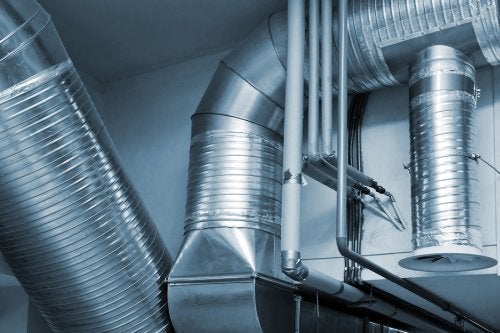
““
-
The Olson Energy Service Story
Olson Energy Service specializes in electrical, water heater, air conditioner, air duct cleaning, boiler, heat pump, and furnace services in Seattle. Family-owned and operated, Olson Energy Service has provided the Greater Seattle Area with decades of first-rate, experienced, and reliable service.
Founded by Garnett Olson in 1926, Olson Energy Service began as Olson Fuel Company, which sold coal and firewood to homes and businesses. By the 1930s, heating fuel preferences shifted towards oil, and the company expanded to include this service. Generations of Olsons have worked for Olson Fuel Company, which became Olson Energy Service in the early 1990s as its range of services grew.
Today, Olson Energy Service boasts numerous affiliations and awards and is among the premier HVAC contractors for Seattle. Our experienced staff continues to provide exceptional, professional, and quality service throughout the Greater Seattle Area and looks forward to helping you with your heating and cooling needs.
““
RECENT POSTS
categories
- Uncategorized
- Air Conditioner
- Fireplace Inserts
- Fireplace Insert Installation
- Air Conditioning Installations
- Air Conditioning Units
- Air Conditioner Maintenance
- HVAC Professionals
- Heat Pump Installation
- Heating and Cooling
- HVAC Unit
- Heat Pumps
- Furnace
- Furnace Service
- Tankless Water Heaters
- Water Heaters
- Energy Efficiency
- HVAC Contractors
- Olson Energy Service
- Mini-Split Systems
- Ductless Air Conditioner
- Residential Services
- Seasonal Boiler Maintenance
- HVAC Maintainance
